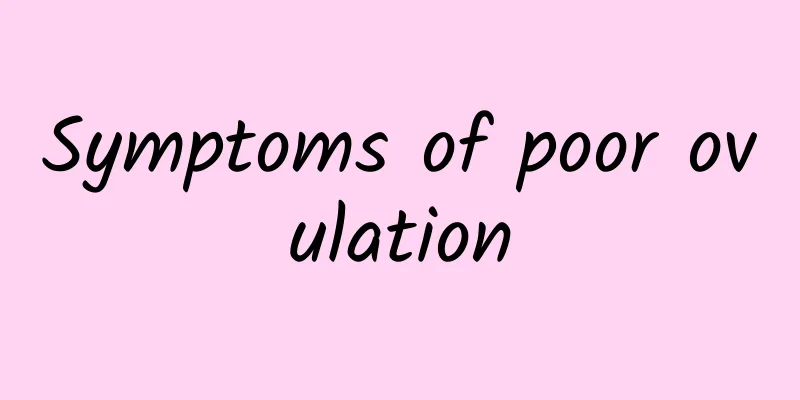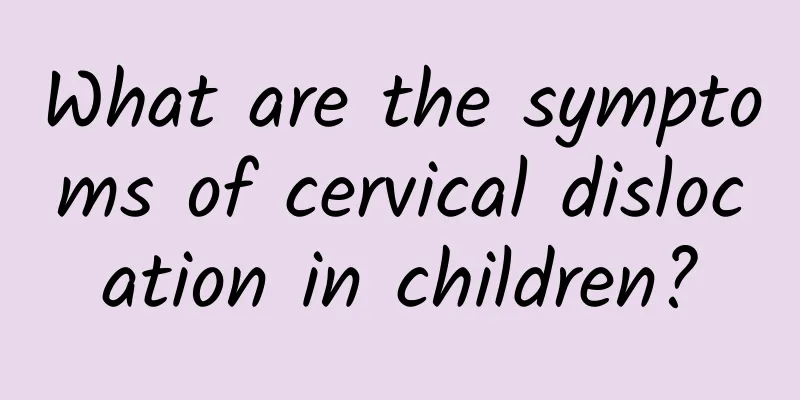What are the symptoms of tattoo allergy? Causes and relief of tattoo allergies

|
Tattoo allergy refers to an allergic phenomenon caused by contact with allergens during the tattoo process. The main symptoms are redness, swelling, itching, and acne. Tattoo allergies are mainly caused by the materials used for tattoos containing chemical pigments such as paraphenylenediamine or the use of non-professional tattoo machines. After the allergy, some methods can be used to relieve the symptoms. Below, we will introduce you to the relevant knowledge about tattoo allergies in detail. 1. What are the symptoms of tattoo allergy? Allergy is a kind of abnormal reaction of the human body. It is usually caused by contact with allergens, which causes the secretion of allergic mediators in the body, resulting in some symptoms. The most common is skin allergy. Generally, it is relatively mild and can be improved by avoiding contact or eating allergic substances. Severe cases may cause anaphylactic shock, which needs to be treated in time. You can use water to clean the allergic area, wipe the skin dry, apply a small amount of medicine to the allergic area of the skin, rub it back and forth with your hands for fifteen minutes, apply it twice a day, and use the medicine continuously. The allergic phenomenon will gradually disappear. 2. What are the causes of tattoo allergies? 1. The chemical pigment p-phenylenediamine used in tattoos can easily cause irritant and sensitive dermatitis, itching of the affected area, and abrasion damage. If the pigment remains on the skin for a long time, it will cause functional disorders of the skin, and in severe cases, edema and ulceration will occur. If the pigment contains 10% p-phenylenediamine, eight out of ten people will become sensitive. 2. Due to their lack of professional knowledge of tattoos, some tattoo enthusiasts actually allow so-called tattoo artists to use eyebrow tattoo machines and non-tattoo pigments to tattoo them! Little do they know that due to the insufficient torque and speed of the eyebrow tattoo machine motor, the tattoo effect is often not to increase beauty but to add ugliness; and it may also cause skin lesions due to reasons such as not mastering the depth. Thereby causing skin allergies. 3. In addition to allergic reactions to the raw materials, the health threats caused by tattoos are also caused by viral infections such as hepatitis B when tattoos are not performed under sterile conditions. 3. What should I do if I am allergic to tattoos? Exercise more to strengthen circulation and metabolism and sweat; Don't stay up late, don't eat spicy food, eat more fruits containing fruit acid; Drink plenty of water, but not a big drink, but small amounts and multiple times; Don’t use too hot water when washing your face, and apply moisturizing cream; You can’t eat spicy or irritating foods on a regular basis. You need to drink more water and eat more foods rich in vitamin A. Also, be sure to get enough sleep. You can apply Yu Min cream and take vitamin E orally. |
<<: What are the symptoms of gastric bleeding? How is the treatment carried out?
>>: What are the effects of golden mustard?
Recommend
Men can't ejaculate after drinking
Many men will find that they can never ejaculate ...
My face is the darkest color on my body. Does this mean my kidneys are not good?
A dark complexion is an obvious sign of kidney de...
What causes baby urticaria?
The main reason for babies to have urticaria is s...
How to treat heel pain
Many times, we experience heel pain. In fact, hee...
Among the clinical manifestations of pheochromocytoma, the first one is the most obvious!
Pheochromocytoma is a common disease in urology a...
What to do if eczema appears around the belly button
Eczema is a common skin disease that often occurs...
Causes of venous dilation
The disease of varicose veins is mainly caused by...
Preventing respiratory infections in spring
Spring is for growth, summer is for growth, autum...
Skin allergy makes your face red, identifying the symptoms is the key
Skin allergy is a pathological reaction. When all...
What is lumbar tubercle?
Lumbar nodules are usually small nodules that app...
Is it good to do scraping regularly? These benefits make you have to choose
In traditional Chinese medicine, scraping is a he...
What are the sequelae of cerebral hemorrhage?
Sudden cerebral hemorrhage has become a common th...
Can infantile hemangiomas disappear on their own?
Infantile hemangioma is also called hemangioma. I...
What is the best medicine for anxiety and insomnia?
Insomnia is quite common in our daily life. There...
Why do you cry when you have a cold?
Colds are very common in our lives. Depending on ...









